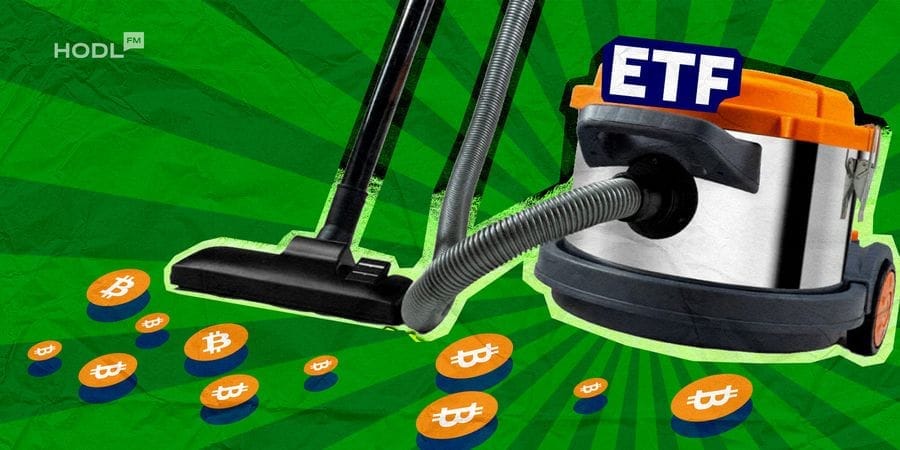The number of publicly traded companies holding Bitcoin (BTC) climbed 38% between July and September 2025, signalling continued institutional confidence in the world’s largest digital asset, according to a new report from Bitwise Asset Management.
The Bitwise Q3 Corporate Bitcoin Adoption Report, which analyzed data from BitcoinTreasuries.NET, found that 172 companies now include Bitcoin in their treasuries. The total represents 48 new entrants during the quarter.
There are almost 40% more public companies holding bitcoin today than there were 3 months ago.
— Bitwise (@BitwiseInvest) October 14, 2025
Companies Are Buying Bitcoin, Q3 2025 Edition: pic.twitter.com/R6m1kyaP0H
Corporate bitcoin value reaches $117 billion
Bitwise reported that the combined value of Bitcoin holdings across public firms rose to approximately $117 billion, a 28% increase over the previous quarter.
The companies collectively hold more than one million BTC, representing 4.87% of Bitcoin’s total supply.
Bitwise Chief Executive Officer Hunter Horsley described the growth as “absolutely remarkable”, adding in a post on X that the data show clear evidence that “people want to own Bitcoin, and companies do too.”
Absolutely remarkable. In Q3 alone:
— Hunter Horsley (@HHorsley) October 14, 2025
1. The number of public corporations that own BTC increased 38%
2. The amount of BTC these 172 pub cos own increased 20% to over 4.8% of all Bitcoin
People want to own bitcoin. Companies do too. https://t.co/pL2vjTtBIs
New entrants signal sustained institutional momentum
The report highlights that the surge in new corporate holders reflects a strategic, long‑term approach to digital‑asset exposure.
Analysts say the trend reinforces the view that corporations are expanding, not retreating, from the crypto market.
Rachael Lucas, an analyst at Australian crypto exchange BTC Markets, told that the data suggest “larger players are doubling down, not backing away.”
Lucas added that corporate participation demonstrates “a long‑term decision on digital assets as part of their treasury strategy,” rather than short‑term speculation.
Leading Bitcoin Treasuries increase reserves
The world’s largest Bitcoin‑holding company remains Strategy, led by Michael Saylor, which added to its position on October 6, lifting its total to 640,250 BTC.
MARA Holdings, a cryptocurrency mining firm, ranks second with 53,250 BTC after an early‑October purchase.
Lucas noted that many firms acquire their coins over the counter (OTC) to minimize market impact, describing it as “a quieter form of accumulation that avoids slippage and volatility.”
While these transactions may limit immediate spot‑price effects, they reveal steady institutional demand despite short‑term market fluctuations.
Demand outpaces supply
Data from Bitbo shows that miners generate roughly 900 BTC per day, while a September report by River Financial estimated that businesses purchase around 1,755 BTC daily in 2025.
This daily shortfall indicates that corporate demand is outpacing new supply.
Edward Carroll, head of markets at MHC Digital Group, said the trend could create a medium‑to‑long‑term supply‑demand imbalance that “places upward pressure on price action”. He added that institutional interest “remains in its early stages” but is deepening steadily as infrastructure and regulation mature.
ETFs drive broader institutional access
Beyond corporate treasuries, Bitcoin exposure through exchange‑traded funds (ETFs) continues to grow.
Bitwise noted that U.S. spot Bitcoin ETFs recorded $2.71 billion in inflows during the first week of October, continuing a strong pattern dubbed “Uptober”.
Lucas believes ETFs mark a “significant shift” by enabling traditional investors to access digital assets via regulated vehicles, further legitimising crypto as part of mainstream finance.
Market outlook
Analysts view the combined rise in corporate treasuries, ETF inflows, and institutional infrastructure as evidence of a maturing crypto economy.
While price volatility persists, the latest data suggest that institutional adoption of Bitcoin is expanding at an accelerating pace, establishing crypto as an increasingly recognized asset class.

Disclaimer: All materials on this site are for informational purposes only. None of the material should be interpreted as investment advice. Please note that despite the nature of much of the material created and hosted on this website, HODL FM is not a financial reference resource, and the opinions of authors and other contributors are their own and should not be taken as financial advice. If you require advice. HODL FM strongly recommends contacting a qualified industry professional.





